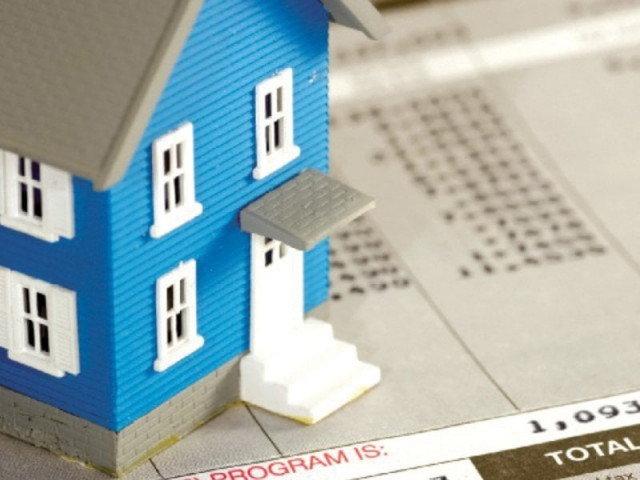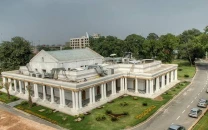Rising rental rates trigger turmoil
Many nuclear families shift to communal living arrangements

With inflation altering the lifestyle choices of millions across the country, those living in rented houses continue their frantic search for ways to counter the rising monthly expenditure on accommodation.
Given the ailing state of Pakistan’s economy, a consistently high level of inflation means that the average costs for bare necessities like food, schooling, clothing and even travel, have all risen exponentially.
As a result, the average citizen, with a mediocre salary and a sizable family to feed, can no longer afford to spend extra money on accommodation and is combating the increasing rental rates by taking measures to reduce the sudden blow to their budget.
Zeeshan, an electrician, who lives in a rented home in Orangi Town, earlier used to ride his bike to work, but now with rental rates peaking he has chosen to walk.
“My rent used to be Rs12,000 per month, but with the current level of inflation, my landlord increased it to Rs15,000, forcing me to walk to work in order to relieve some of the burden on my budget,” he shared.
According to Mohammad Azam Nawab, a realtor based in Karachi, landlords have increased the rents of most single and shared properties by almost Rs10,000 and many estate agents have also started charging 10 per cent more for their services, leaving many low-income households in a conundrum.
“In light of the skyrocketing rental rates, many nuclear families are battling the effects of inflation by renting communal spaces with their extended families in order to divide the rental costs,” revealed Nawab.
One such family is of a tenant Aamir Ahmad Khan and his four brothers, who alongside their wives and children, have started living in a five room apartment in a residential building.
“In recent times, our rent had increased to Rs45,000. We decided that each family would contribute Rs9,000, thereby reducing the impact of the rising rental rates on our finances,” remarked Khan.
“Families who do not live in joint families would indeed be the worst affected.”
A case in point is of the nuclear family of a tailor, Kamal, who lives in Punjab Colony with his wife and five children. Despite Kamal’s wife and two younger children contributing to the family income through parttime jobs, the rising rental costs have landed the family in a deep financial crisis.
“My occasional tailoring orders generate monthly earnings of about Rs25,000 only, while my wife and children earn even less. Ever since the landlord increased our rent from Rs8,000 to Rs10,000, we have been struggling,” shared Kamal.
While some complain of the rising rental costs alone, other locals highlight the fact that while accommodation expenditures and household budgets are burgeoning, salaries remain the same.
“Ever since my landlord started charging Rs3,000 more for my single-room apartment, I have struggle to accommodate the extra costs in my fixed monthly income,” complained a female domestic worker living in Musa Colony.
Kamran Ahmed, a homeowner in the Lines Area neighborhood confirmed the same, saying those living in homes they own were lucky.
“Even though inflation has increased my expenditures on food and travel, I feel blessed knowing that I do not have to allocate a large proportion of my fixed income for rent,” commented Ahmed.



















COMMENTS
Comments are moderated and generally will be posted if they are on-topic and not abusive.
For more information, please see our Comments FAQ